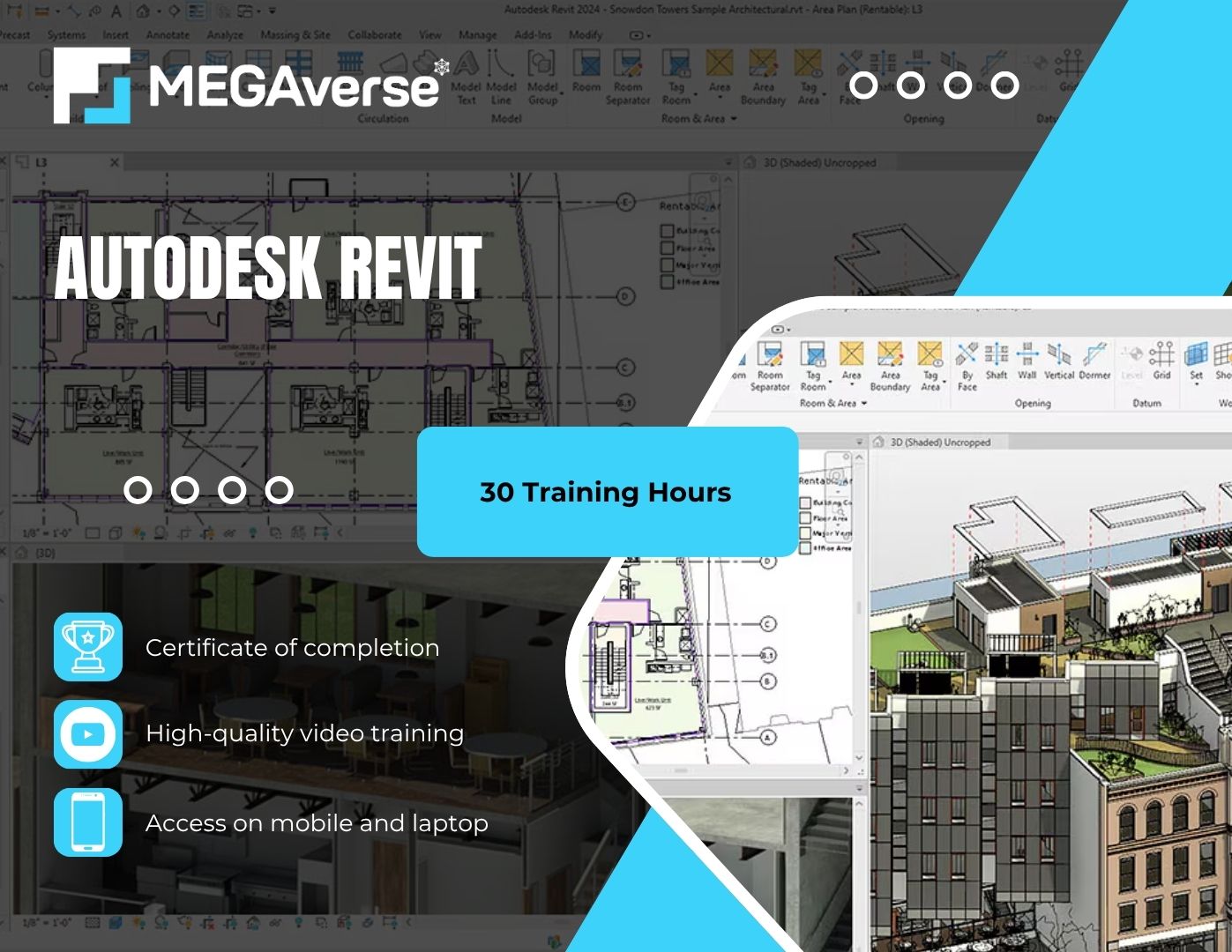Currently Empty: $0.00
About Course
This course provides a comprehensive introduction to Revit MEP (Mechanical, Electrical, and Plumbing) for professionals in the AEC (Architecture, Engineering, and Construction) industry. You will learn the essential tools and techniques needed to work on MEP design projects using Revit, focusing on key systems like CCTV, Power, Communication, Security, and Fire Alarm. The course also covers the practical aspects of working with architects and engineers, project documentation, family creation, and template setup. With a strong emphasis on real-world application, you’ll acquire skills to collaborate with project teams, manage project location and orientation, and create detailed schedules and annotations.
Course Content
Lectures
-
Lecture 1
01:25:35 -
Lecture 2.1
01:15:50 -
Lecture 2.2
01:08:09 -
Lecture 3.1
01:16:35 -
Lecture 3.2
01:47:37 -
Lecture 4.1
01:12:39 -
Lecture 4.2
01:41:07 -
Task One
-
Lecture 5.1
01:13:14 -
Lecture 5.2
01:06:12 -
Lecture 6.1
59:35 -
Lecture 6.2
01:45:53 -
Task 2
-
Lecture 7.1
01:17:08 -
Lecture 7.2
59:55 -
Pdf files
-
Lecture 8
02:37:53 -
Lecture 9.1
01:18:04 -
Lecture 9.2
59:33 -
Lecture 10.1
56:35 -
Lecture 10.2
01:08:31 -
Task 3
Student Ratings & Reviews
والله المهندس تعب معنا كثير، شكرا ليكم
Enrolling in the Revit MEP course was a valuable step for me as a fresh graduate mechatronics engineer. I learned how to design electrical layouts, position panels, establish circuit connections, and prepare precise schedules. The training also gave me hands-on practice with coordination and clash detection, which enhanced my ability to see how electrical designs fit together with other engineering disciplines. This experience improved my technical knowledge and made me more confident in applying these skills to real-world projects.
لقد كان كورس ممتع ومفيد واستفدت كثيرا وكل الشكر والاحترام للمهندس هشام احمد
Taking the Revit MEP course was a good match for me as an electrical engineer. It helped me learn how to design electrical systems, place panels, create circuit connections, and generate accurate schedules. I also gained experience with coordination and clash detection, which improved my understanding of how electrical design integrates with other disciplines. Overall, it strengthened my practical skills and supports my work in real projects.




